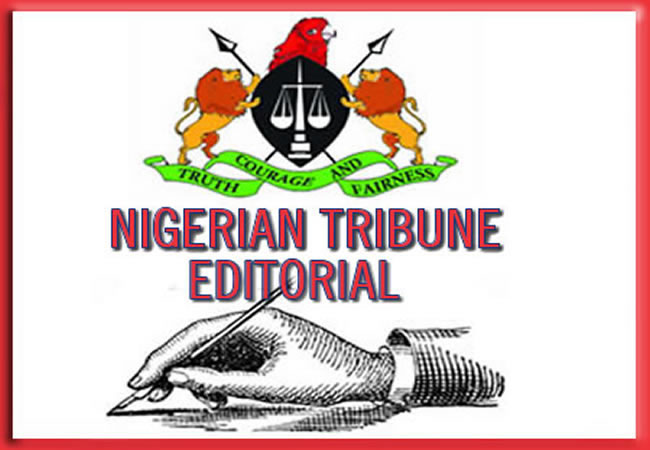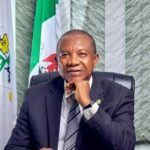IN what seems to be an unmistakable affirmation of the fact that humanity and selflessness are critical features of civilisation, some 270 very wealthy persons, largely from the world’s prosperous industrial nations, have called on politicians and policymakers to increase their tax burden. Their noble objective is to occasion a redistribution of income and reduction in the burgeoning inequality in many societies. They specifically asked for their wealth to be taxed more, warning that if their elected representatives did not address the drastic rise in economic inequality, the consequences would be catastrophic. In their formal communication to the world leaders that congregated in Davos, Switzerland, for the World Economic Forum (WEF), last week, the world billionaires and millionaires stated: “Our request is simple: we ask you to tax us, the very richest in society. This will not fundamentally alter our standard of living, deprive our children, nor harm our nation’s economic growth. But it will turn extreme and unproductive private wealth into an investment for our common democratic future.”
This is a rather strange but pleasant development as it is customary for the wealthy and big corporations even in the advanced democracies to support and/or discretely sponsor the aspiration of politicians who will implement policies that are favourable to their selfish interests, including reduction in tax burden. For this category of people who are actually capable of paying more taxes to be expressing willingness to do so is really commendable, even though, in a sense, it is ultimately in their enlightened self-interest to go that route. It is trite that the rich have a greater opportunity of enjoying their affluence without having to look over their shoulders only when the poor are, at least, fairly comfortable.
The WEF was attended by political leaders as well as the world’s rich and powerful in the Swiss resort town of Davos where they discussed global, regional and industry goals. One major takeaway from the summit is that politicians from the 17 countries whose rich citizens were signatories to the request now know that they have an increased avenue to raise more money to fund the provision of more public goods and services. To stress the significance of their request so that politicians can treat it with the seriousness it deserves, the world’s rich referenced a similar call they made in the past but which was largely ignored. And in their letter to the congregated world leaders, they said they were surprised that their previous calls had yet to be heeded, stating that they were not seeking drastic changes, only financial policies that would prevent the society from further degradation. “Inequality has reached a tipping point, and its cost to our economic, societal and ecological stability risk is severe and growing every day. In short, we need action now,” the letter stated, adding that philanthropy and one-off donations would not fix the issue. It added: “Not only do we want to be taxed more, we believe we must be taxed more. We would be proud to live in countries where this is expected, and proud of elected leaders who build better futures.”
There can be no better way to eloquently show that these wealthy people possess the milk of human kindness than their well articulated resolve to give back to the society by way of tax obligation and not just Corporate Social Responsibility (CSR) or one-off voluntary donations. Obviously, these rich people are not looking to attract personal or brand recognition and applause to themselves in their quest to make sacrifices for the common good. This is a praiseworthy prioritisation of humanity over and above self, and it is perhaps an indication that the societies may be getting saner. Indeed, the recognition by these moneybags of the ultimate negative implication of growing inequality in the world and in societies and their recommendation of higher taxes on themselves to serve as an antidote and provide greater succour to the poor is a salutary commentary on humanity and perhaps the changing face of capitalism, whose operation was hitherto regarded as lacking a human face.
The humanistic concern is laudable. It shows that politicians have to do more and be conscious of the consistent, deleterious impacts of their policies on the living conditions of the people as a way to create a more tolerable and sustainable society where depth of poverty does not consign some to a subhuman existence. This is especially so in a context like Nigeria, defined more in the last decades by growing poverty and even acquiring the horrible sobriquet of poverty capital of the world amid the luxurious life of politicians and their families. If those who live in more organised and sustainable societies could be concerned with the crisis of growing inequality and its possible malodorous consequences in the long run, it is time, too, that qualified and able Nigerians joined the quest for the amelioration of the condition of the poor through personal sacrifice. This is especially imperative in Nigeria where the society figuratively and literally tramples on its poor and seeks, perhaps unwittingly, at every turn to make them poorer. We therefore urge Nigeria’s billionaires to take a cue from these moneybags and similarly show concern for the poor.
We admonish Nigerian politicians to positively act on the justifiable concern of these billionaires. And we strongly urge the citizenry, civil society organisations and others to ensure that if and when Nigeria’s rich join the fray and additional revenue is scooped from them, it is applied judiciously to dampen misery and reduce inequality in the society. This is one of the surest ways to ensure a more equitable and sustainable future devoid of conflagration and disorder born out of the ineluctable eruption of the poor if they are kept miserable for too long. We salute the courage and unprecedented empathy that motivated the world’s rich to want to serve humanity in a most unusual but pragmatic way. The gesture is applaudable and worthy of emulation, especially in Nigeria where the concerns which are central to the moneybags’ decision and humane request, namely poverty and inequality, are rife.
WATCH TOP VIDEOS FROM NIGERIAN TRIBUNE TV
- Let’s Talk About SELF-AWARENESS
- Is Your Confidence Mistaken for Pride? Let’s talk about it
- Is Etiquette About Perfection…Or Just Not Being Rude?
- Top Psychologist Reveal 3 Signs You’re Struggling With Imposter Syndrome
- Do You Pick Up Work-Related Calls at Midnight or Never? Let’s Talk About Boundaries







